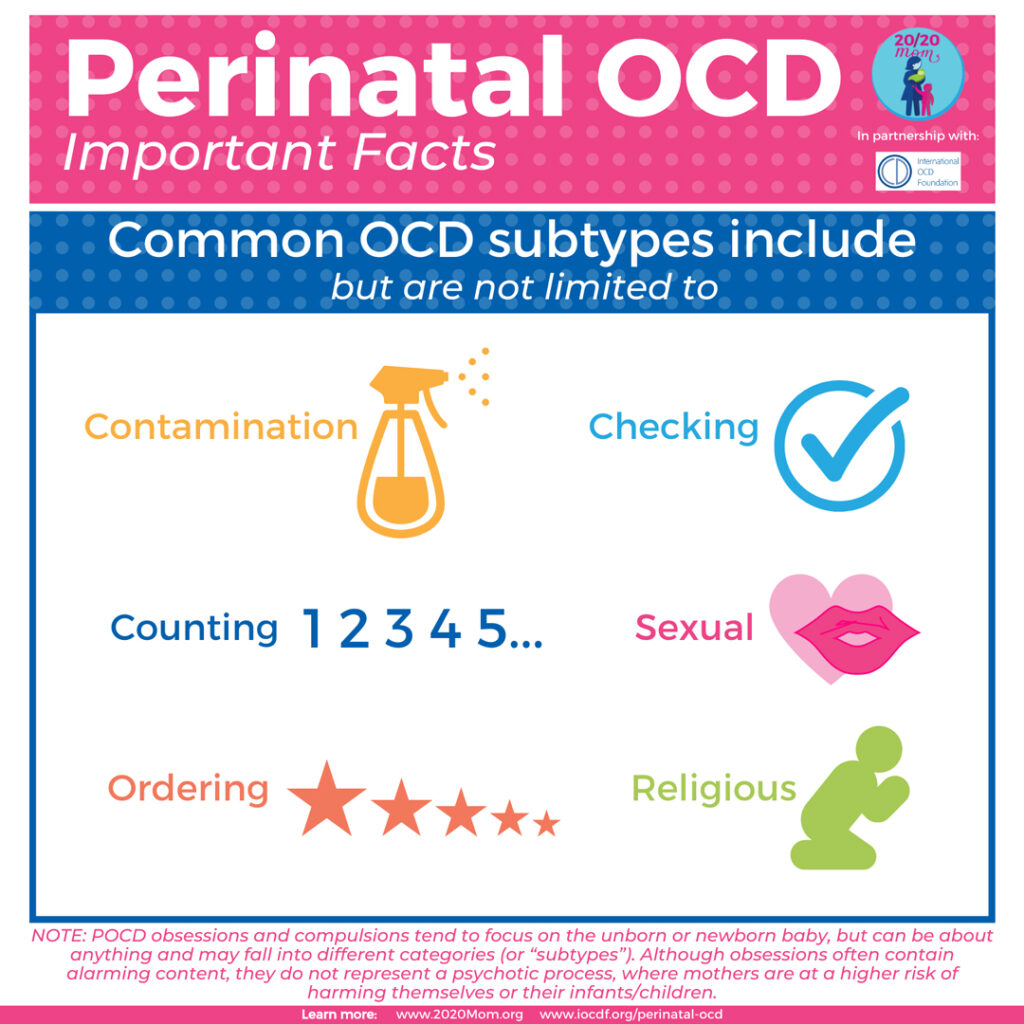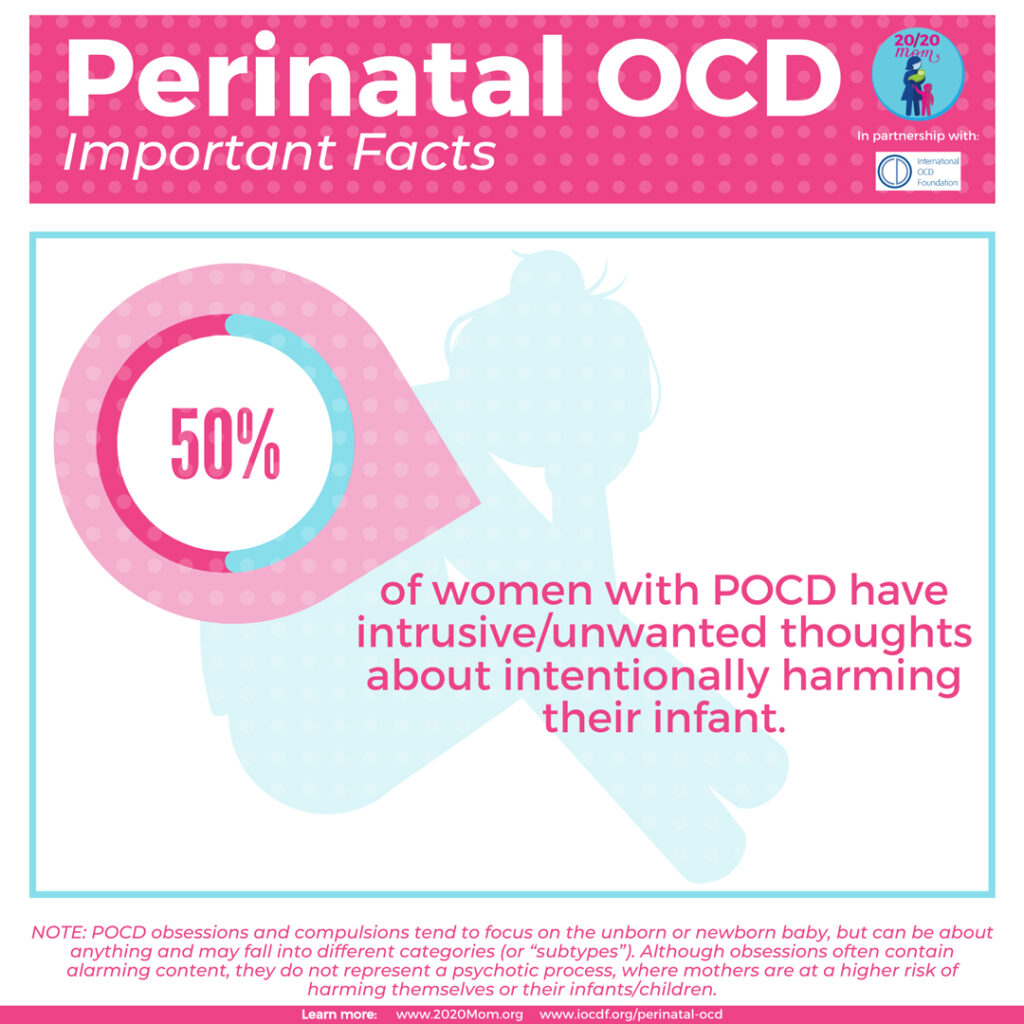Introduction:
Bringing a new life into the world is undoubtedly a momentous and joyous occasion, but for some, the journey to parenthood is accompanied by unexpected challenges. One such challenge that can impact both expectant mothers and new parents is Obsessive-Compulsive Disorder (OCD). In this blog post, we will explore the unique aspects of OCD during pregnancy and postpartum, shedding light on its prevalence, symptoms, and potential coping strategies for individuals navigating this intricate terrain.
Rates of perinatal OCD range from 2-11%, with a peak at 2 months postpartum. It is crucial to recognize that the symptoms of OCD can vary widely among pregnant individuals. Some may experience a resurgence of pre-existing OCD symptoms, while others may develop new compulsive behaviors or obsessions related to pregnancy and impending motherhood.
The intersection of hormonal changes, sleep deprivation, and the adjustment to new parental responsibilities can contribute to the manifestation or exacerbation of OCD symptoms. It is essential for individuals experiencing these symptoms to seek support promptly, as untreated postpartum OCD can have a profound impact on the parent-child relationship and the overall well-being of the family.
Obsessive-Compulsive Disorder (OCD) can present in various ways during pregnancy, and the specific manifestations may differ among individuals. Here are some common presentations of OCD during pregnancy:

- Prenatal Health Concerns:
- Obsession: Fear of harming the unborn baby or concerns about the baby’s health.
- Compulsion: Frequent doctor visits, repeated medical tests, or excessive monitoring of fetal movements.
- Cleanliness and Contamination Fears:
- Obsession: Heightened fear of germs, toxins, or contaminants during pregnancy.
- Compulsion: Excessive handwashing, avoidance of certain places or people perceived as “contaminated,” or an obsession with cleanliness.
- Parenting Competence Worries:
- Obsession: Doubts about one’s ability to be a good parent, fear of making irreversible mistakes.
- Compulsion: Constantly seeking reassurance from others, researching parenting techniques excessively, or performing rituals to ensure the baby’s safety.
- Intrusive Thoughts about Harm:
- Obsession: Disturbing thoughts about accidental harm coming to the baby or fears of being responsible for something bad happening.
- Compulsion: Engaging in rituals to neutralize or alleviate the anxiety caused by these intrusive thoughts.
- Perfectionism in Preparing for Parenthood:
- Obsession: An overwhelming need for everything to be perfect in preparation for the baby.
- Compulsion: Spending excessive time organizing baby-related items, cleaning the nursery repeatedly, or arranging things in a specific, ritualistic manner.
- Religious or Moral Concerns:
- Obsession: Intrusive religious or moral thoughts related to pregnancy, childbirth, or parenting.
- Compulsion: Engaging in religious rituals, confessing perceived wrongs, or seeking constant reassurance to alleviate guilt or anxiety.
- Hyperawareness of Bodily Sensations:
- Obsession: Heightened sensitivity to bodily sensations during pregnancy, interpreting normal symptoms as signs of impending danger.
- Compulsion: Frequent medical check-ups, seeking reassurance from healthcare providers, or researching symptoms excessively.
- Fear of Losing Control:
- Obsession: Fear of losing control over one’s thoughts or actions, particularly in relation to the baby.
- Compulsion: Mental rituals or repetitive behaviors aimed at gaining a sense of control, such as counting or repeating certain phrases.
- Postpartum Checking and Reassurance-Seeking:
- Obsession: Persistent doubts about parenting abilities, concerns about development
- Compulsion: Seeking constant reassurance from others, including healthcare professionals, family members, or friends, repetitive checking on baby, googling as form of checking.

Treatment:
Therapeutic interventions, such as Cognitive-Behavioral Therapy (CBT), Exposure and Response Prevention (ERP) and support groups, can be particularly beneficial in addressing the specific challenges faced by individuals with perinatal OCD.
Medication can be an effective component of the treatment plan for Obsessive-Compulsive Disorder (OCD), particularly when combined with psychotherapy. During the perinatal period, I first opt for an SSRI, though may use a tricyclic antidepressant or even augment with a low dose antipsychotic for more refractory cases. There are many safe medication options in women who are pregnant or breastfeeding and a reproductive psychiatrist can help you navigate the options.